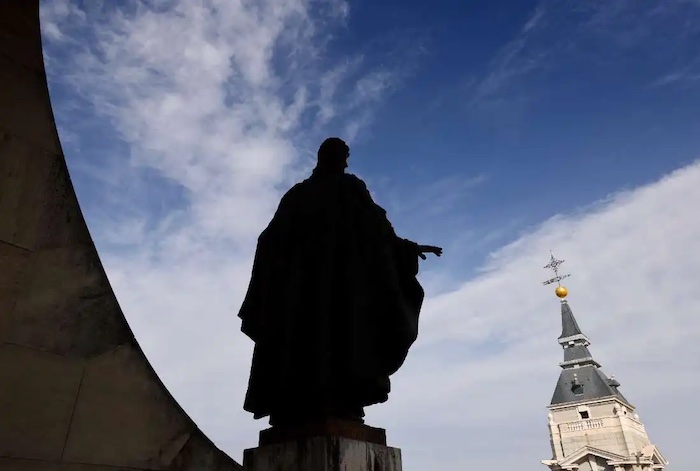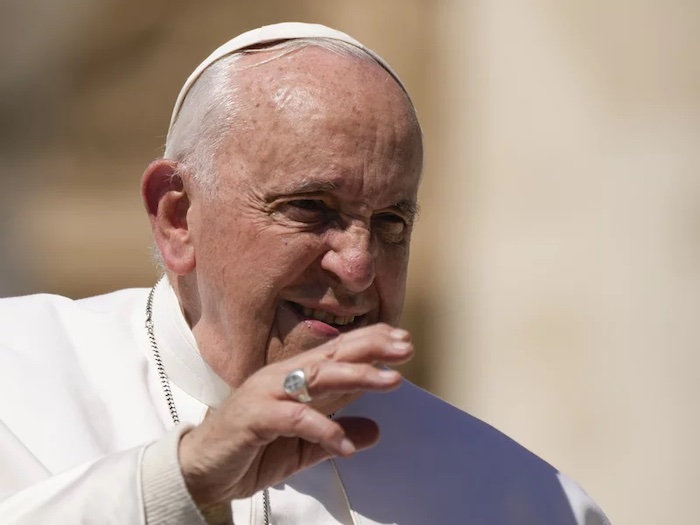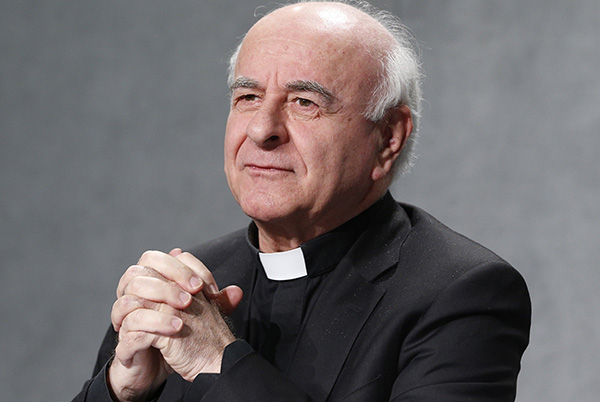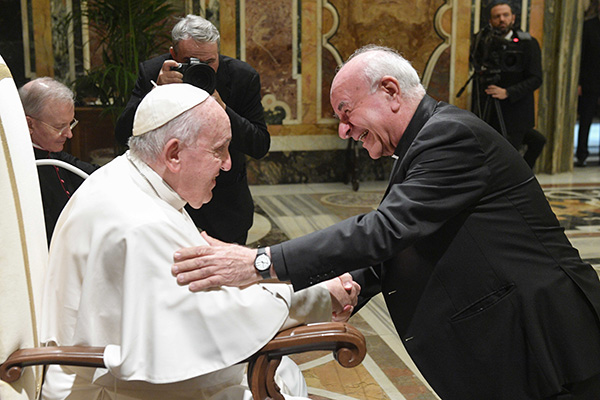— Compiled with the Vatican’s Madrid nunciature, the ‘guidelines for action’ would be binding throughout the Spanish church

By Jonathan Luxmoore
Spain’s Catholic bishops have adopted guidelines for tackling sexual abuse by clergy, while also urging the prohibition of surrogacy and restating the church’s political independence in key upcoming elections.
In a weekend statement following its April 17-21 plenary, the bishops’ conference said the “guidelines for action,” worked on since April 2019, had now been approved for all dioceses and religious orders in light of Pope Francis’ recent updates to his 2019 apostolic letter on abuse, “Vos Estis Lux Mundi” (“You are the light of the world”), which take effect April 30.
The conference added that the guidelines, compiled with the Vatican’s Madrid nunciature, would be binding throughout the Spanish church and face updates whenever canonical regulations changed.
The announcement follows a March 13 report by a lay commission, appointed by Spain’s Cortes parliament in March 2022 under ombudsman Ángel Gabilondo, which said it so far collected testimonies from 445 victims of alleged clerical abuse, but still awaited access to church files and “collaboration by different levels of the Catholic church.”
However, in an April 17 opening address to the plenary, the bishops’ conference president, Cardinal Juan Omella of Barcelona, said the Spanish church had opened 202 diocesan and monastic offices for “action and training” against abuse in the last two years, backed by a central “coordination and advisory service,” set up in April 2021.
“It is not enough to ask for forgiveness — we want this scourge to disappear from our society, and are therefore continuing to collaborate with judges, prosecutors and the ombudsman, providing all the information we have and activating our protocols,” said Cardinal Omella, who attended his first Rome meeting April 24 as a new member of the pope’s Council of Cardinals — the pontiff’s advisers.
“However, we regret this painful issue is not being addressed in its global dimension but insistently analyzed as a drama exclusively within the ambit of the church. The church confesses its sin, but deplores that an issue affecting many other sectors of society is not being properly exposed, so a solution can be sought which encompasses the full extent of this social problem.”
On a separate note, the bishops’ conference called for a ban on surrogate motherhood in Spain, adding that the “development of healthy democracy” required that “no individual, majority or state” should attempt to “create, modify or destroy” established values.
It added that the church recognized the suffering of couples “afflicted by infertility,” but said there was no “right to a child” and deplored Spanish society being left “in darkness caused by unjust laws promulgated against life and dignity.”
“Maternity by surrogacy is, unequivocally, a new form of exploiting women contrary to the dignity of the human person, since it uses the female body and her entire person, reducing her to a human incubator,” the note from the bishops’ Commission for Laity continued.
“With the so-called ‘rental uterus,’ maternity becomes an object of commerce to be bought and sold,” it said. “The woman is reduced to a simple instrument, a womb at the disposal of the contracting party, opening the way to the human person’s exploitation and commercialization.”
The note was the latest to criticize the socialist-led government of Pedro Sánchez, who in June 2018 became Spain’s prime minister to decline to take his inaugural oath on the Bible, and formed a left-wing coalition with the radical Podemos party in January 2020 under a program pledging liberal changes.
In March, Spain’s Constitutional Tribunal approved government-backed laws withdrawing state subsidies from Catholic single-sex schools and allowing euthanasia for patients suffering “intolerable physical or psychological conditions.”
Other new laws, enacted in February, will allow 16-year-olds to obtain abortions without informing their parents and re-register their gender through a court declaration without medical or legal procedures, while also liberalizing sex education and criminalizing prayers outside abortion clinics.
Tax exemptions on church donations and public works, established in 2001 under an agreement with the Vatican, also were scrapped March 29, while a draft family law will recognize 16 different “family types.”
The conservative opposition Partido Popular and Vox parties have accused the Sánchez government of overturning Spain’s system of values and vowed to challenge the new measures if successful on May 28 regional and Dec. 10 parliamentary elections.
However, at an April 21 Madrid press conference, the bishops’ conference general secretary, Auxiliary Bishop César García Magán of Toledo, said the church would remain neutral in the elections, adding that no political party could claim to be the “party of the church.”
“Let’s hope that no one uses the church as a bargaining chip or throwing weapon in prior political debates,” Bishop García Magán told the Alfa y Omega Catholic weekly.
“It’s the lay faithful who must make a practical assessment of who to deposit their votes for. Priests should not indicate this since that would constitute clericalism.”
Although 53.7% of Spain’s 47 million inhabitants still identify as Catholic, according to March data, religious vocations and Mass attendance have dropped sharply across the church’s 70 dioceses and 23,000 parishes, while well over half of all 18-34-year-olds declare themselves nonreligious.
Complete Article ↪HERE↩!





